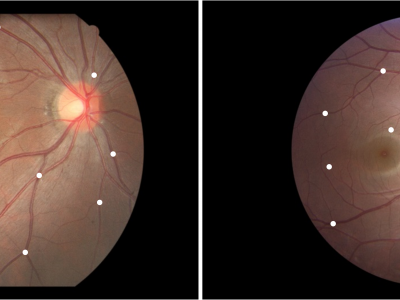Artificial Intelligence

The dataset and source code used in paper "Pick the Better and Leave the Rest: Leveraging Multiple Retrieved Results to Guide Response Generation".
- Categories:
 58 Views
58 ViewsRecognizing and categorizing banknotes is a crucial task, especially for individuals with visual impairments. It plays a vital role in assisting them with everyday financial transactions, such as making purchases or accessing their workplaces or educational institutions. The primary objectives for creating this dataset were as follows:
- Categories:
 316 Views
316 ViewsThis dataset contains video-clips of five volunteers developing daily life activities. Each video-clip is recorded with a Far InfraRed (FIR) camera and includes an associated file which contains the three-dimensional and two-dimensional coordinates of the main body joints in each frame of the clip. This way, it is possible to train human pose estimation networks using FIR imagery.
- Categories:
 443 Views
443 Views
This compressed package is essential for KHDNN as it includes various components necessary for its functionality. Inside, you will find an Embedding, knowledge graphs, a user-item bipartite graph, and training records specifically tailored to the book-crossing dataset. These elements are crucial for KHDNN to operate effectively and provide accurate recommendations to users based on their preferences and interactions with books.
- Categories:
 126 Views
126 Views
Contains the benchmark Bayesian network dataset, which uses the seed of Bayesian networks from https://www.bnlearn.com. Some of the data comes from https://pages.mtu.edu/~lebrown/supplements/mmhc_paper/mmhc_index.html. And other datasets from the UCI that contain mixed data.
- Categories:
 640 Views
640 ViewsFundus Image Myopia Development (FIMD) dataset contains 70 retinal image pairs, in which, there is obvious myopia development between each pair of images. In addition, each pair of retinal images has a large overlap area, and there is no other retinopathy. In order to perform a reliable quantitative evaluation of registration results, we follow the annotation method of Fundus Image Registration (FIRE) dataset [1] to label control points between the pair of retinal images with the help of experienced ophthalmologists. Each image pair is labeled with
- Categories:
 225 Views
225 Views
This LTE_RFFI project sets up an LTE device radio frequency fingerprint identification system using deep learning techniques. The LTE uplink signals are collected from ten different LTE devices using a USRP N210 in different locations. The sampling rate of the USRP is 25 MHz. The received signal is resampled to 30.72 MHz in Matlab and is saved in the MAT file form. The corresponding processed signals are included in the dataset. More details about the datasets can be found in the README document.
- Categories:
 446 Views
446 Views




